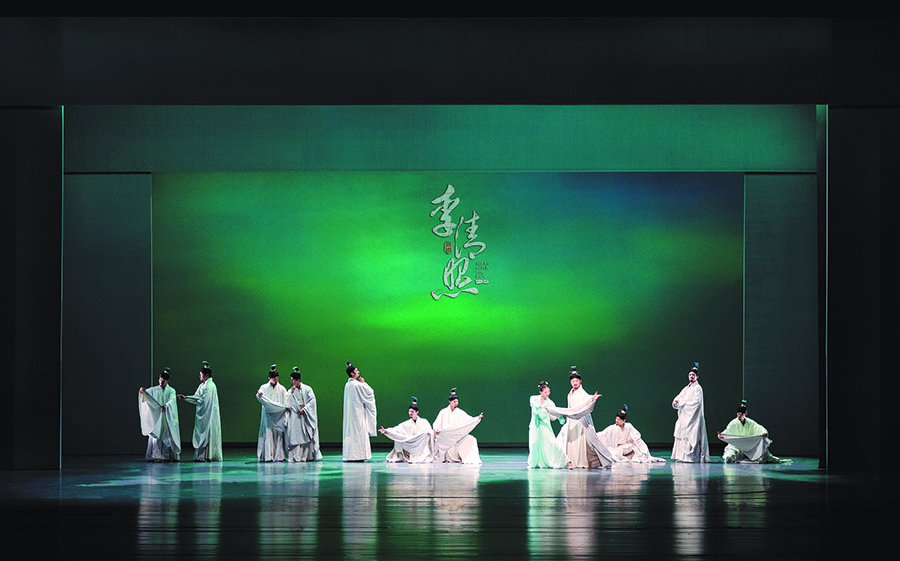

Story of Li Qingzhao's life tiptoes into her world of loss, struggle, resilience and memories, Zhang Kun reports.
Among China's renowned ancient poets, Li Qingzhao (1084-1155) is remarkable for her literary creation and life story. Both were presented in dance theater for the first time at the 23rd China Shanghai International Arts Festival.
The production Azure After the Rain premiered on Oct 17 at Shanghai Culture Square and was produced by the Shanghai Dance Theatre as the festival's opening show.
The festival is hosted by the Ministry of Culture and Tourism of China and organized by the Shanghai municipality as an annual carnival of art since 1999. Running from Oct 18 to Nov 17, it features more than 300 performances and exhibitions presented by 2,000 artists from 80 countries and regions.
Directed by Zhang Disha and Liu Xiaohe, Azure After the Rain is the latest creation by the Shanghai Dance Theatre following the success of The Crested Ibises and The Eternal Wave, both of which have performed hundreds of shows at home and abroad in the past few years.
"Li Qingzhao is the most talented female poet in China in the past millennia and we tell her story through classical Chinese dance, presenting the ups and downs of her life in social turbulence and digging into her inner world," says Yu Rongjun, the playwright for the show. "We want to highlight her great literary achievements and contributions to the inheritance of Chinese literary classics.
"It is essential that we present key moments in her life through dance, integrating the imagery and artistic expressions of her poems," he says.
Zhou Xiaohui, who performed the heroine on premiere night, says: "I have loved Li's poetry since I was a schoolgirl. Only in my portrayal of the character, I managed to walk in her world and see her growth from a carefree, innocent girl to a strong, resilient woman."
Zhou says Li experienced social disturbance at the overturn of the Northern Song Dynasty (960-1127), fell from a prestigious family into poverty, lost her beloved husband, and most of their cherished collection. After all the misfortune and suffering, she continued her literary work. "Li was never defeated, neither by fate nor time," she says.